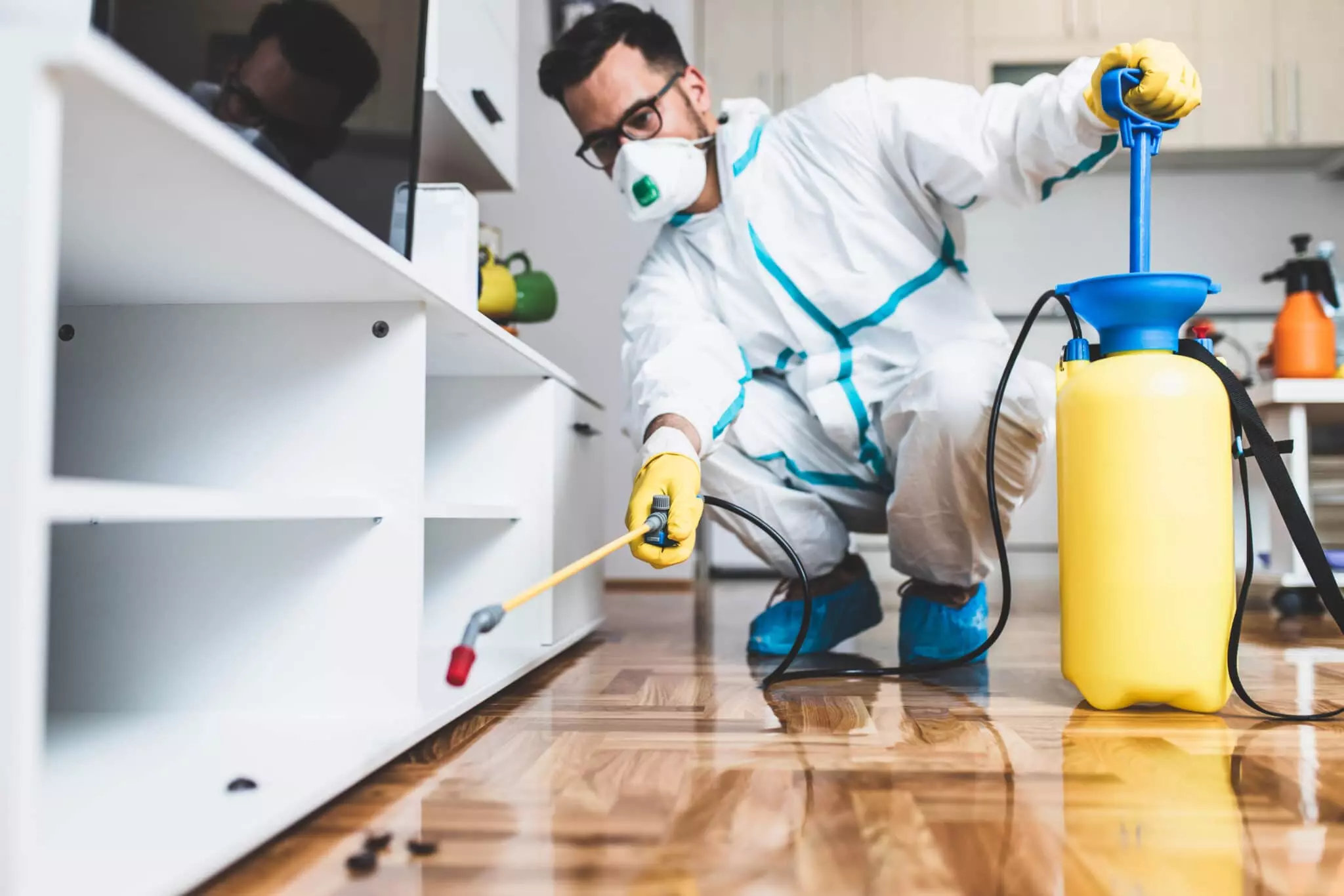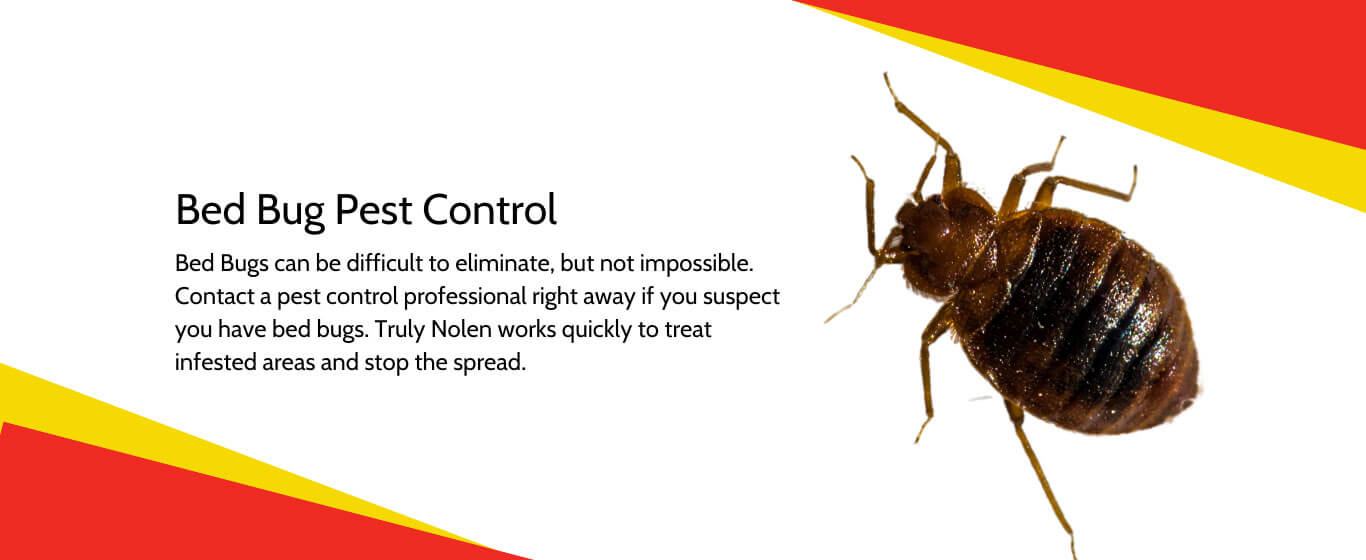Safe and Reputable Pest Control for Lasting Defense
The relevance of safe and reputable pest control can not be overemphasized, specifically in a period where environmental worries are extremely important. Efficient parasite monitoring calls for a complex approach that balances environmental honesty with the need for effective insect reductions. By exploring environmentally friendly solutions and incorporated bug monitoring approaches, property owners can achieve lasting defense versus intrusive varieties while guarding useful ecosystems. Nevertheless, the subtleties of these approaches might not be right away clear, triggering a better assessment of the techniques that can result in sustainable insect control results. What steps can be required to make certain both safety and security and effectiveness in parasite administration?
Comprehending Insect Control Methods
Pest control incorporates a range of methods targeted at handling and removing undesirable insects and rodents that can intimidate both health and wellness and residential property. Recognizing these methods is important for reliable pest administration.
The key categories of pest control techniques include mechanical, organic, and chemical techniques. Mechanical approaches include physical barriers and traps to avoid insect entry and capture undesirable species. Utilizing screens on home windows or using sticky catches can dramatically minimize bug populations without presenting dangerous compounds - exterminator coquitlam.

Chemical parasite control is usually the most acknowledged approach, making use of chemicals to remove bugs. These chemicals can be effective yet have to be used with care to prevent negative results on non-target types and the setting.
Advantages of Eco-Friendly Solutions
How can green options change parasite control practices? The adoption of green pest control approaches uses numerous advantages, dramatically boosting the performance and safety of bug management.

Another advantage is the favorable influence on regional biodiversity. Eco-friendly options are designed to target particular bugs while maintaining valuable insects and wildlife, promoting a balanced ecosystem. This method straightens with the growing consumer demand for sustainable methods, enhancing the online reputation of insect control carriers.
Integrated Parasite Administration Strategies
The execution of environmentally friendly services naturally results in the adoption of Integrated Parasite Administration (IPM) strategies, which further boost bug control efficacy. IPM is an alternative technique that incorporates several techniques to take care of insect populaces while decreasing environmental effect. This method emphasizes the use of organic, cultural, mechanical, and chemical controls, guaranteeing a well balanced and sustainable technique of bug administration.
One essential aspect of IPM is the extensive assessment of pest task and ecological conditions. By monitoring bug populaces and identifying termites their life cycles, specialists can carry out targeted treatments that disrupt the insect's habitat or lifecycle, decreasing reliance on chemical pesticides. Furthermore, social methods such as plant rotation and habitat control can significantly diminish bug establishment and reproduction.
One more crucial component is using biological control representatives, such as helpful bugs or bacteria, which can naturally reduce bug populaces. When chemical applications are necessary, IPM prioritizes the use of low-risk chemicals and uses them uniquely, minimizing exposure to non-target microorganisms and people.
Incorporating IPM techniques not only enhances bug control effectiveness however also advertises a more secure ecological community, lining up with the growing need for sustainable practices in bug management.
Safe Practices for Home Owners
Understanding the value of risk-free techniques in bug control can equip house owners to properly handle pest problems while guarding their wellness and the setting. Executing preventive steps and non-toxic approaches is vital in reducing exposure to hazardous chemicals.
Homeowners must initially assess their atmosphere for problems that attract parasites, such as standing clutter, water, and food waste. Frequently cleaning and sealing access points can prevent parasites from attacking the home. Using all-natural deterrents, such as vital oils or diatomaceous planet, can supply effective options to chemical pesticides.
When chemical therapies are needed, house owners must go with items that are specifically labeled as secure for residential usage. It is crucial to adhere to application standards meticulously to stay clear of overexposure. Additionally, utilizing targeted therapies in areas where bugs are determined, as opposed to covering splashing, can considerably minimize chemical use.
Lastly, maintaining open communication with bug control specialists is important. Home owners need to ask about the safety and security of products utilized and demand eco-friendly alternatives whenever feasible. By embracing these safe techniques, homeowners can produce a healthier living environment while successfully managing parasite concerns.

Tips for Long-Term Defense
Developing a bug administration strategy that highlights lasting protection can significantly enhance the efficiency of the safe techniques formerly reviewed. To accomplish this, property owners should execute normal inspections of their building, concentrating on hidden areas such as attics, cellars, and crawl areas. Early discovery of parasite activity is essential in protecting against infestations from holding.
Additionally, maintaining a tidy setting is essential. This consists of correct food storage, promptly cleansing spills, and bed bug removal consistently disposing of trash. These methods decrease attractants that attract parasites right into the home. Securing entrance factors, such as cracks around home windows and doors, can efficiently obstruct potential pest accessibility.
Landscape design ought to likewise be considered; keeping plants cut and maintaining a range between plants and the home minimizes hiding places for bugs. Making use of natural deterrents, such as crucial oils or diatomaceous earth, can better inhibit problems without considering extreme chemicals.
Finally, working together with a professional bug control service for regular assessments can provide an extra layer of safety. These specialists can use tailored referrals and advanced therapies, ensuring that your home remains safeguarded against parasites in the long-term.
Final Thought
In conclusion, reputable and risk-free bug control calls for a multifaceted technique that stresses environmentally friendly methods and integrated pest monitoring. By carrying out all-natural deterrents, conducting normal examinations, and preserving appropriate sanitation, building proprietors can substantially decrease insect populations while shielding beneficial insects and the environment. Cooperation with expert insect control solutions more tips here improves the efficiency of these techniques, guaranteeing customized solutions that offer long lasting defense and comfort versus future invasions.
Reliable insect monitoring requires a multifaceted strategy that balances ecological stability with the need for efficient pest reductions. The adoption of environment-friendly bug control techniques offers numerous advantages, substantially improving the efficiency and safety and security of insect administration.The implementation of environment-friendly remedies normally leads to the fostering of Integrated Bug Administration (IPM) approaches, which better improve parasite control efficacy. exterminator coquitlam. By keeping an eye on insect populations and recognizing their life cycles, practitioners can apply targeted treatments that interrupt the bug's environment or lifecycle, lowering dependence on chemical pesticides.In conclusion, secure and reputable insect control requires a diverse technique that emphasizes eco-friendly approaches and integrated bug monitoring